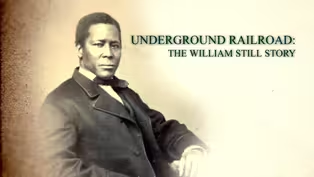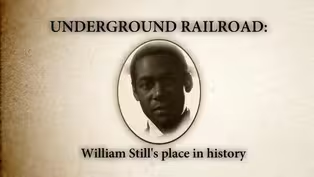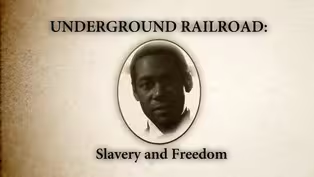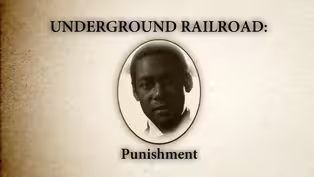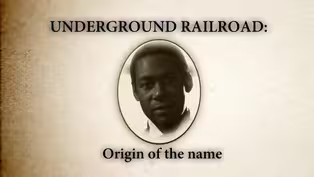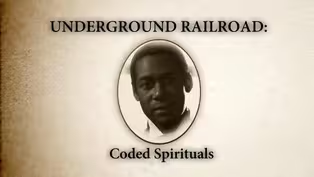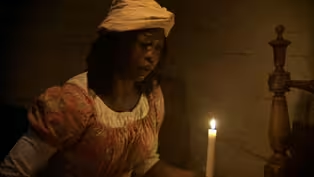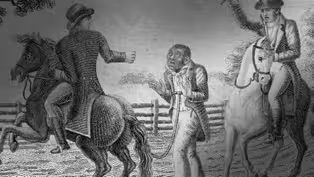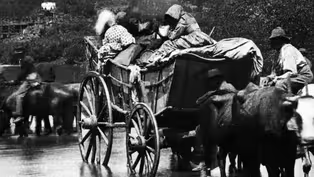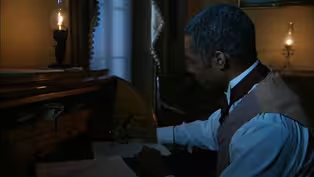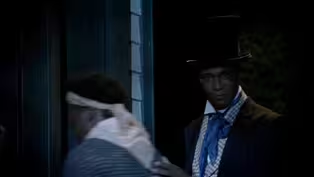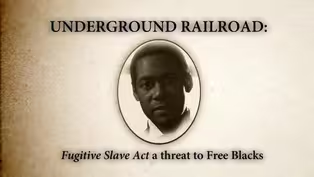Underground Railroad: The William Still Story
Slavery and Freedom
Clip | 3m 16sVideo has Closed Captions
In the 1850s many Americans believed that slaves were incapable of surviving on their own.
As incredible as it sounds today, in the 1850s many Americans believed that slaves were incapable of thinking for themselves and could not survive on their own. They believed that the black man was created by God to serve a white master and found passages in the Bible to prove it. Some slave holders even argued that they were doing their slaves a favor by providing them with food and shelter.
Problems playing video? | Closed Captioning Feedback
Problems playing video? | Closed Captioning Feedback
Funding provided by CN Railway, Rogers Cable Network, Canada Media Fund, and Rogers Documentary Fund. Additional support from David W. Pretty, Vernon Achber & Phil Lind, and CPB.
Underground Railroad: The William Still Story
Slavery and Freedom
Clip | 3m 16sVideo has Closed Captions
As incredible as it sounds today, in the 1850s many Americans believed that slaves were incapable of thinking for themselves and could not survive on their own. They believed that the black man was created by God to serve a white master and found passages in the Bible to prove it. Some slave holders even argued that they were doing their slaves a favor by providing them with food and shelter.
Problems playing video? | Closed Captioning Feedback
How to Watch Underground Railroad: The William Still Story
Underground Railroad: The William Still Story is available to stream on pbs.org and the free PBS App, available on iPhone, Apple TV, Android TV, Android smartphones, Amazon Fire TV, Amazon Fire Tablet, Roku, Samsung Smart TV, and Vizio.
Preview | 30s | This is the story of a man who risked his life shepherding runaway slaves to freedom. (30s)
William Still's Place in History
Video has Closed Captions
Clip | 2m 18s | William Still earned the name "The Father of the Underground Railroad". (2m 18s)
Video has Closed Captions
Clip | 3m 16s | In the 1850s many Americans believed that slaves were incapable of surviving on their own. (3m 16s)
Video has Closed Captions
Clip | 1m 46s | Slaves who ran away from their masters and were re-captured suffered terrible punishments. (1m 46s)
Origin of the name Underground Railroad
Video has Closed Captions
Clip | 1m 19s | Historians have never been able to pin down how the Underground Railroad got its name. (1m 19s)
Video has Closed Captions
Clip | 2m 27s | Well-known Negro Spirituals of the mid-1800s are much more complex than they first appear. (2m 27s)
Sydney Still's Run for Freedom
Video has Closed Captions
Clip | 3m 15s | Program Segment for PBS Learning Media (3m 15s)
The Fugitive Slave Act Classroom Segment
Video has Closed Captions
Clip | 2m 45s | Program segment for PBS Learning Media (2m 45s)
Video has Closed Captions
Clip | 5m 26s | Program segment for PBS Learning Media. (5m 26s)
Video has Closed Captions
Clip | 1m 18s | Program segment for PBS Learning Media. (1m 18s)
Video has Closed Captions
Clip | 2m 15s | The Fugitive Slave Act was an attempt by the government to appease southern slave states. (2m 15s)
Providing Support for PBS.org
Learn Moreabout PBS online sponsorshipSupport for PBS provided by:
Funding provided by CN Railway, Rogers Cable Network, Canada Media Fund, and Rogers Documentary Fund. Additional support from David W. Pretty, Vernon Achber & Phil Lind, and CPB.
